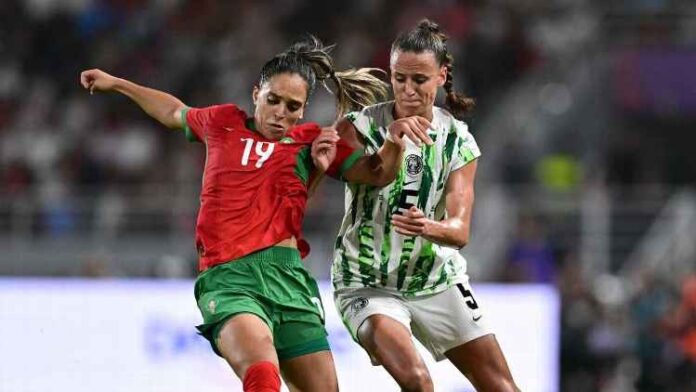In the wake of their thrilling victory at the 2025 Women’s Africa Cup of Nations (WAFCON) final, Nigeria’s Super Falcons are now facing an unexpected challenge off the pitch. Morocco, the defeated host nation, has filed a formal petition with the Confederation of African Football (CAF), questioning the eligibility of two key Nigerian players who featured in the dramatic 3-2 final on Saturday.
This petition casts a spotlight on the nationality switch rules in international football, but Nigeria remains confident in its position.
The Moroccan Challenge: Eligibility of Plumptre and Alozie
Before the final match even kicked off, Morocco had reportedly lodged a protest regarding the eligibility of two Super Falcons defenders: Ashleigh Plumptre and Michelle Alozie. Both players were born outside Nigeria but made the decision to represent Nigeria at the senior international level.
In their petition to CAF, Morocco claims that the manner of their nationality switch is “faulty,” citing alleged “irregularities” in their claims to be Nigerian citizens. The North African nation is explicitly seeking to have Nigeria stripped of the WAFCON title by virtue of fielding these two players in the tournament.
Nigeria’s Confident Stance: FIFA Approval and Birthright
Despite Morocco’s strong stance, Nigeria appears unconcerned by the petition. A top member of the Nigeria Football Federation (NFF) has reportedly dismissed the protest, terming it “dead on arrival.” This confidence stems from the established processes and rules governing player eligibility.
- Ashleigh Plumptre’s case is well-documented: she was granted approval by FIFA to play for Nigeria in 2021. This approval came after it was definitively established that her paternal grandfather is Nigerian, fulfilling FIFA’s criteria for players with ancestral ties.
- Michelle Alozie’s situation is even more straightforward: she was born in the USA to Nigerian immigrant parents. Under FIFA rules, players born abroad to parents from a specific country are generally eligible to represent that country, provided they hold its nationality.
FIFA’s eligibility rules allow players with multiple nationalities or ancestral ties to choose which country to represent, provided certain conditions are met, including not having played a competitive senior match for another nation. Both Plumptre and Alozie’s cases were processed and approved through the appropriate channels, making Nigeria’s confidence in their eligibility understandable.
The Road Ahead: CAF’s Verdict
While Morocco’s petition adds a layer of post-tournament drama, Nigeria’s football authorities are not losing sleep over it. The expectation is that CAF will review the evidence and uphold the Super Falcons’ victory, given that both players received proper FIFA clearance.
This incident highlights the growing intensity and scrutiny in African women’s football, as nations strive for continental supremacy. However, for now, Nigeria stands firm as the 10-time WAFCON champions, awaiting CAF’s official confirmation that their hard-fought victory remains undisputed.


